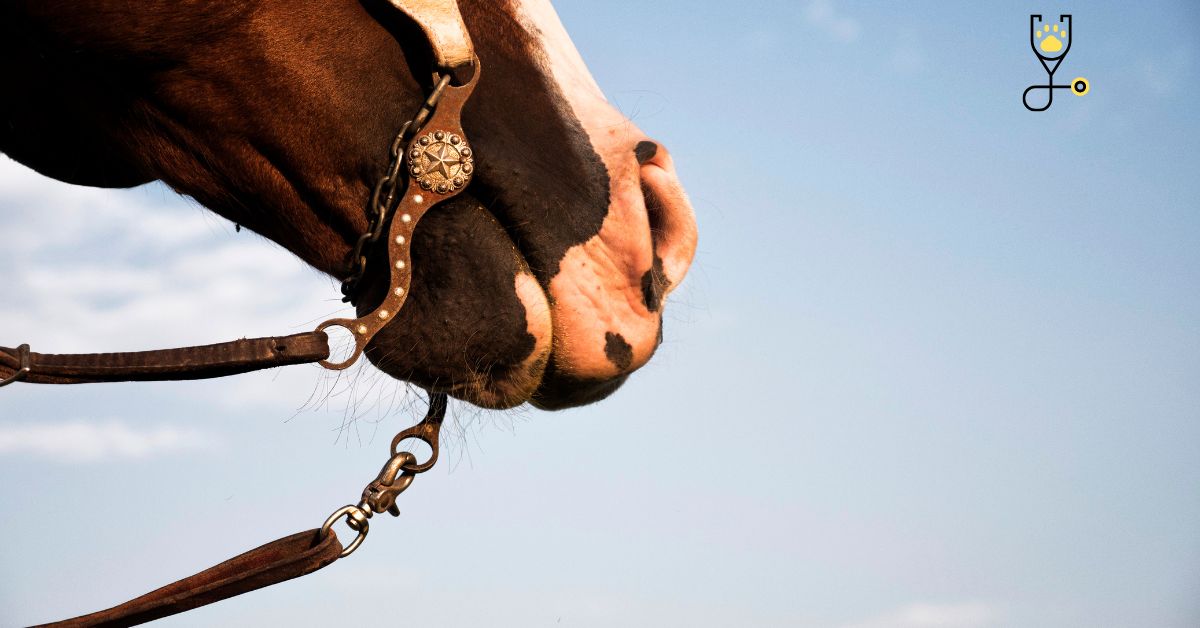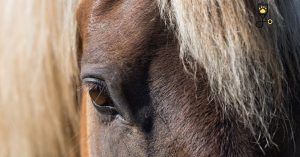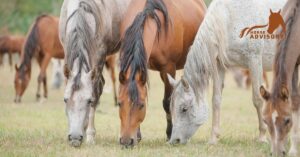Do you know what slobbers in horses are? It’s basically excessive drooling and it can be a symptom of several different things. In this post, we’ll tell you all about slobbers in horses-what causes it, how to treat it, and how to prevent it. So if your horse is starting to drool more than normal, read on for information that could help!
What Are Slobbers in Horses?
As we said, slobbers in horses are excessively drooling. It’s also called hypersalivation, ptyalism, or sialorrhea. Slobbers usually happen when there is an issue with the horse’s salivary glands, which are responsible for producing saliva.
- There are three pairs of salivary glands in the horses-the parotid, sublingual, and mandibular glands. The parotid gland is the largest of the three and it’s located behind the horse’s ears. The sublingual glands are located under the tongue and the mandibular glands are located below the jawline.
Symptoms of Slobbers in Horses
The most obvious symptom of slobbers is, of course, drooling. But there are some other symptoms you might see in a horse with slobbers, including:
1. Foamy saliva: If your horse’s saliva is foamy or bubbly, it could be a sign of slobbers.
2. Excessive drooling: This is probably the most common symptom of slobbers. If your horse is drooling more than normal, it’s a good idea to have him checked out by a vet.
3. Drooling from the nose: In some cases, horses with slobbers will also drool from their noses.
4. Coughing: Coughing can be another symptom of slobbers, especially if the saliva is coming up through the horse’s nose.
5. Difficulty swallowing: If your horse seems to have trouble swallowing, it could be a sign that he’s having trouble with his salivary glands.
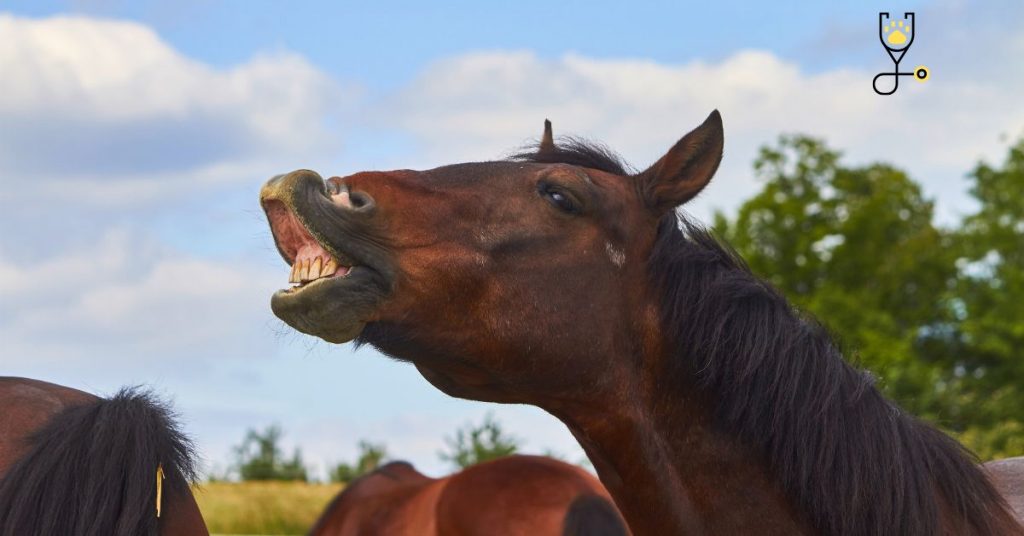
6. Weight loss: In some cases, horses with slobbers will lose weight because they’re not able to digest their food properly.
7. Behavioral changes: If your horse is acting differently than usual, it could be a sign that something is wrong. He might be less interested in food or he might seem uncomfortable.
If you notice any of these symptoms in your horse, it’s a good idea to have him checked out by a vet. Slobbers can be caused by a variety of different things and the sooner you get a diagnosis, the better.
Causes of Slobbers in Horses
There are several different things that can cause slobbers in horses, including:
1. Allergies: Allergies are one of the most common causes of slobbers in horses. If your horse is allergic to something, it can cause his salivary glands to swell and produce more saliva than normal.
2. Respiratory infections: Respiratory infections, such as viral upper respiratory tract infections, can also cause slobbers. These infections can inflame the horse’s salivary glands and cause them to produce more saliva.
3. Dental problems: Dental problems, such as abscesses or infected teeth, can also lead to slobbers. When the horse’s teeth are infected, it can cause the salivary glands to swell and produce more saliva.
4. Tumors: Tumors, either benign or malignant, can also cause slobbers. Tumors can block the ducts that lead from the salivary glands to the mouth, which can cause saliva to build up and eventually leak out.
5. Kidney disease: Kidney disease can also lead to slobbers. When the kidneys are not functioning properly, they can’t remove toxins from the body as effectively. These toxins can build up in the horse’s saliva and cause the salivary glands to swell.
6. Liver disease: Liver disease can also cause slobbers. The liver is responsible for removing toxins from the blood, but if it’s not working properly, those toxins can build up in the saliva and cause the salivary glands to swell.
7. Stress: Stress can also lead to slobbers. When horses are stressed, their bodies produce more of the hormone cortisol. This hormone can cause the salivary glands to swell and produce more saliva.
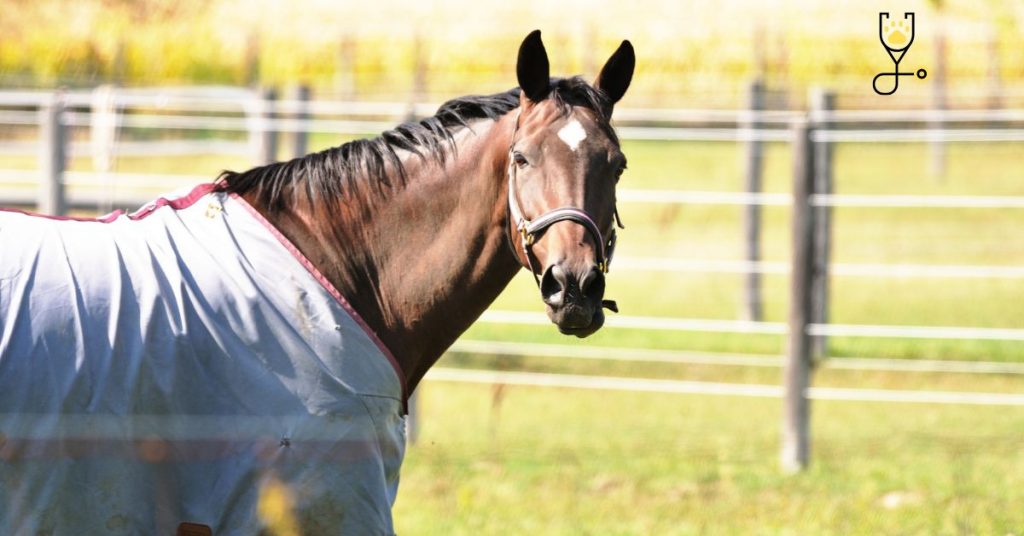
Treatment for Slobbers in Horses
The treatment for slobbers will depend on the underlying cause.
- If the cause is an allergy, the horse will need to be treated with antihistamines or steroids to reduce the swelling of his salivary glands.
- If the cause is a respiratory infection, the horse will need to be treated with antibiotics.
- If the cause is a dental problem, the horse will need to have his teeth cleaned or extracted.
- If the cause is a tumor, the horse will need to have surgery to remove the tumor.
- If the cause is kidney disease, the horse will need to be treated with medication to improve kidney function.
- If the cause is liver disease, the horse will need to be treated with medication to improve liver function.
- If the cause is stress, the horse will need to be given a calm environment and plenty of rest.
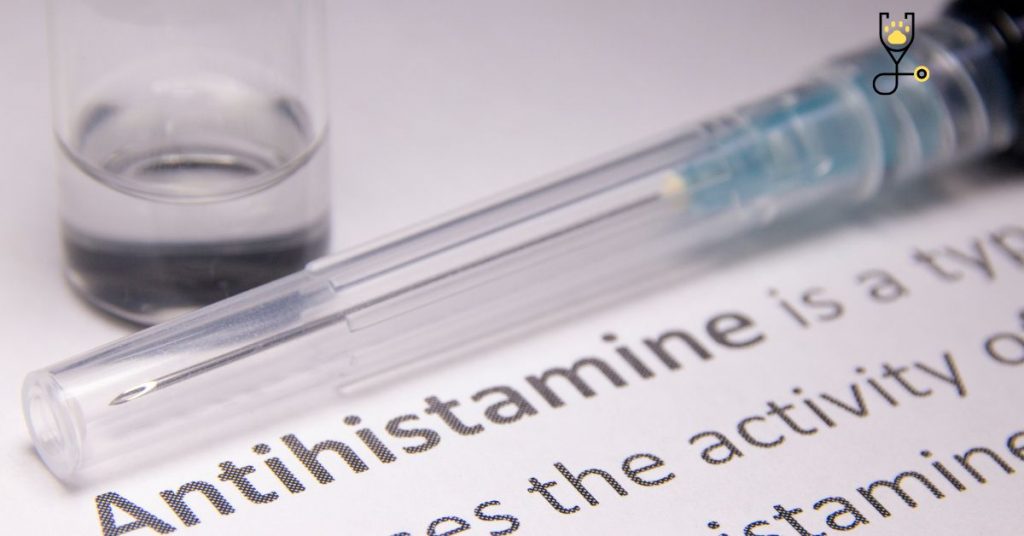
Preventions of Slobbers in Horses
There are several things that you can do to prevent slobbers in your horse, including:
1. Vaccinate your horse: Make sure that your horse is up-to-date on his vaccinations. This will help to prevent respiratory infections, which can lead to slobbers.
2. Inspect your horse’s teeth regularly: Inspect your horse’s teeth regularly and have any problems addressed immediately. This will help to prevent dental problems, which can lead to slobbers.
3. Keep your horse stress-free: Try to keep your horse’s environment as stress-free as possible. This will help to prevent stress, which can lead to slobbers.
4. Feed a balanced diet: Feed your horse a balanced diet that is high in fiber and low in sugar. This will help to keep his digestive system healthy and prevent allergies, which can lead to slobbers.
5. Provide clean water: Make sure that your horse has access to clean water at all times. This will help to prevent kidney disease, which can lead to slobbers.
6. Take your horse for regular checkups: Take your horse for regular checkups with his veterinarian. This will help to catch any problems early and prevent them from getting worse.
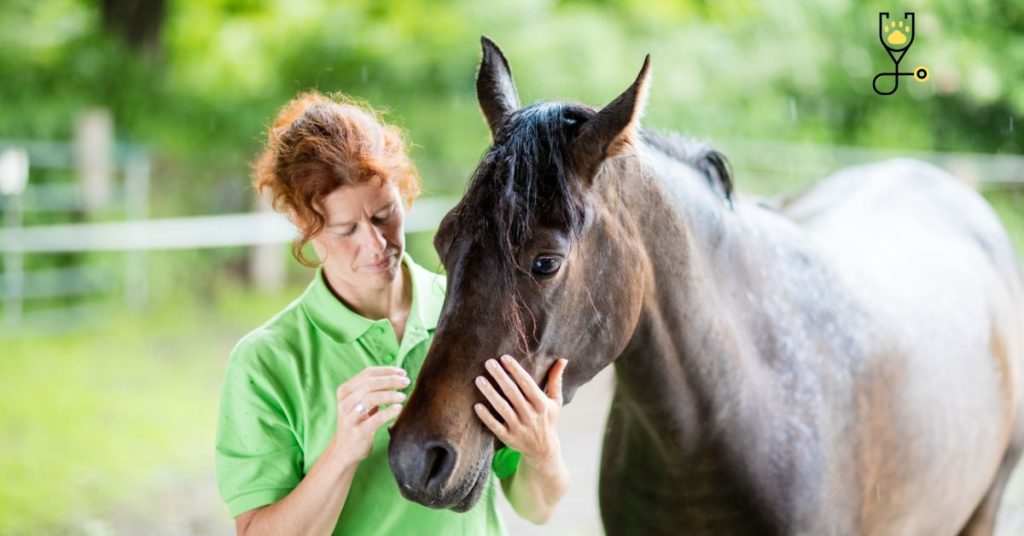
Diagnosis of Slobbers in Horses
-The veterinarian will take a complete history of the horse, including his diet, vaccinations, and any recent changes in his environment.
-The veterinarian will perform a physical examination of the horse.
-The veterinarian may recommend blood tests, urine tests, or x-rays to rule out other conditions.
-The veterinarian may recommend a biopsy of the salivary glands to confirm the diagnosis.
The prognosis for Slobbers in Horses
1. If the underlying cause is an allergy, the prognosis is good. The horse can be treated with antihistamines or steroids to reduce the swelling of his salivary glands.
2. If the underlying cause is a respiratory infection, the prognosis is good. The horse can be treated with antibiotics.
3. If the underlying cause is a dental problem, the prognosis is good. The horse can have his teeth cleaned or extracted.
4. If the underlying cause is a tumor, the prognosis is good. The horse can have surgery to remove the tumor.
5. If the underlying cause is kidney disease, the prognosis is fair to good. The horse can be treated with medication to improve kidney function.
6. If the underlying cause is liver disease, the prognosis is fair to good. The horse can be treated with medication to improve liver function.
7. If the underlying cause is stress, the prognosis is good. The horse can be given a calm environment and plenty of rest.
8. If the underlying cause is unknown, the prognosis is fair. The horse can be treated with medication to reduce the swelling of his salivary glands, but the condition may recur.
Conclusion
Slobbers is a condition that affects horses and can be caused by a number of different things. The most important thing you can do to prevent slobbers is to vaccinate your horse and keep his environment stress-free. If your horse does develop slobbers, the prognosis is good if the underlying cause is known and treated.
If you think your horse may have slobbers, contact your veterinarian immediately. Slobbers can be uncomfortable for your horse and can lead to other problems if left untreated.
Frequently Asked Questions
1. What is slobbers?
Slobbers are a condition that affects horses and can be caused by a number of different things. The most important thing you can do to prevent slobbers is to vaccinate your horse and keep his environment stress-free. If your horse does develop slobbers, the prognosis is good if the underlying cause is known and treated.
2. What are the causes of slobbers?
The most common causes of slobbers are allergies, respiratory infections, dental problems, tumors, kidney disease, liver disease, and stress.
3. How is slobbers diagnosed?
The veterinarian will take a complete history of the horse, including his diet, vaccinations, and any recent changes in his environment. The veterinarian will perform a physical examination of the horse. The veterinarian may recommend blood tests, urine tests, or x-rays to rule out other conditions. The veterinarian may recommend a biopsy of the salivary glands to confirm the diagnosis.
4. What is the prognosis for slobbers?
The prognosis for slobbers is good if the underlying cause is known and treated. If the underlying cause is unknown, the prognosis is fair.
5. How can I prevent my horse from getting slobbers?
You can prevent your horse from getting slobbers by vaccinating him and keeping his environment stress-free.
